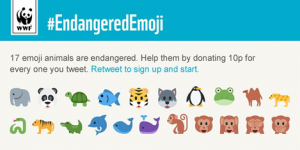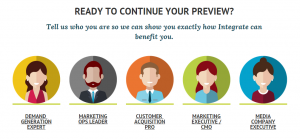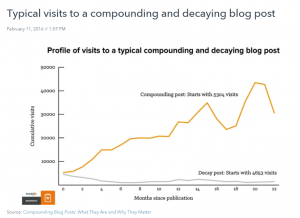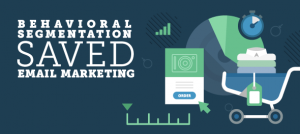Are you looking for a way to engage with your online audience and grow your email list that doesn’t involve a giveaway?
There are many ways to enhance your lists and your social presence, beyond contests and other kinds of promotions.
In this article, I’ll describe five kinds of non-giveaway Campaigns, and the most important components needed for each one. Each of these examples are clients of my software, ShortStack.com.
1. Raise Awareness Using a User-Generated Content Campaign
When you have content that is created by your audience or fans, it’s called User-generated content (UGC). The content could be photos, videos, recipes, etc. A UGC Campaign is a fun way to get high levels of engagement while simultaneously collecting valuable consumer data.
There is a bit of an art to collecting user-data. Most likely your audience will need a little motivation. Nothing is more motivating than talking about something that you’re passionate about. Seeing as user-generated Campaigns usually ask entrants to submit a video, photo or a story, you’re more likely to hit your entry goals if you tap into the passions of your audience.
End Allergies Together (E-A-T) is non-profit that’s dedicated to funding a cure for food allergies. When this organization asked their Facebook fans to provide insight into why they wanted to see a cure for food allergies, they received a large amount of entries.
While tapping into your audience’s passion will help increase your entries, most people are motivated by some sort of reward. Even though you’re not running a giveaway, having something small you can offer to your entrants provides a little more incentive for them to provide you the feedback you’re looking for. This can be as simple as a sticker, or highlighting someone’s story/feedback on your website or social sites.

2. Gain Customer Insight with a Quiz Campaign
Which color best matches your personality? Which Friends star are you most like?
Quizzes have swept over the internet and people love them for obvious reasons; they’re fun, easy to enter and entertaining.
However, is there a place for quizzes for brands and businesses? Of course there is!
Offering a quiz is a good way to get your fans interacting with your Campaign and still providing the information you want them to receive without being overly promotional. When building a quiz it’s important to remember that business quizzes are successful because they ask the right questions. The right questions are ones that are relevant to your business and will provide you with feedback you can use to better your product or for future marketing.
The Minnesota Lottery decided to do a fun interactive quiz where they helped fans determine which of Minnesota’s Lottery’s games they should play. The Campaign is well branded and the quiz is easy to navigate with clear pictures and choices. By helping fans determine which lottery game they should play, Minnesota Lottery is encouraging fans to play the lottery.
If you want to run a quiz I recommend looking for a third-party software that makes it easy to set up and run. The features to look for is the ability to set up a series of questions and automatically calculate scores and present results. I know a variety of third-party Campaign builders offer a quiz option, but clearly I’m biased towards my own company’s personality quiz template.
One more thing, don’t forget to collect that data! Savvy marketers know to collect data from their fans every chance they get. Once your quiz is over you can ask for an email address from your fans and notify them of your future quizzes and Campaigns.

3. Showcase Valuable Information About Your Product/Services with a Landing Page
Downloadable PDFs, infographics, eBooks and free guides are becoming popular free resources offered by brands in their content marketing. These materials help educate audiences about a company and their products while positioning you as a leader in your industry.
Check out this great example of a valuable resource offering from SBLI a life insurance company. They’re using a landing page or Campaign to display their Life Insurance Quick Guide. Seeing as life insurance can be a little mind boggling, SBLI took the most important information and simplified it into four main points for their audience. Using a landing page helped them design the information into an infographic-style layout making it easy to follow.
This page is now a permanent landing page that you can navigate to from their website. Since they used ShortStack to build the landing page, they don’t need their web master to update it; any member of their team can easily go to the Campaign and make the updates.
4. Announce An Upcoming Event or Offer
Is your business hosting webinars? Special training courses? Limited-time offers? All of these are an opportunity to engage with your audience and build your lists without having to give something away.
You can always host the registration for these events and offers on your website, blog or Facebook Page, but using a Campaign and building a landing page for each individual event is an easy way to streamline your fans through the exact tunnel you want them to go through.
Facebook ad expert, Jon Loomer, is big on landing pages. He uses them to promote all of his webinars, guides, and classes. In the example below you can see what a landing page for one of Jon’s webinars looks like. For Jon, there’s no question that the people who navigate to this page and sign up for his webinar are interested in the benefits of the Power Editor. After he’s hosted the webinar he can go back to this list and provide them with additional resources for using Power Editor.
Don’t forget your landing page best practices and remember to use your social accounts to drive targeted traffic to your landing page.

5. Get Feedback About New Products/Ideas
There is one common goal that all businesses have: provide products and services that clients want. Sometimes, it’s hard to know exactly what your audience is looking for and that’s when it’s a great time to ask!
Think of using a Campaign to get feedback from your audience as setting up a massively targeted focus group. Plus, the more involved in your brand and products that your fans are the more loyal they’re likely to be.
Zipcar UK recently used a marketing Campaign to gather some feedback about a brand new Android App they’ve built. Zipcar UK published the Campaign on their website and promoted it on Facebook to reach their existing users.
By asking their fans to try their latest app they were able to build an email list of people they know are interested in their latest products. There’s nothing more valuable than a list of potential clients!

Contests and other giveaways will remain a powerful and popular tool for collecting leads and driving engagement, but they’re not the only option.
In all of these examples, businesses are still able to grow their lists into targeted marketing groups without having to give something away.
Have you designed any other non-promotional Campaigns that worked well for you? I’d love to hear about them, so please let me know in the comments below.
Digital & Social Articles on Business 2 Community(117)
Report Post








